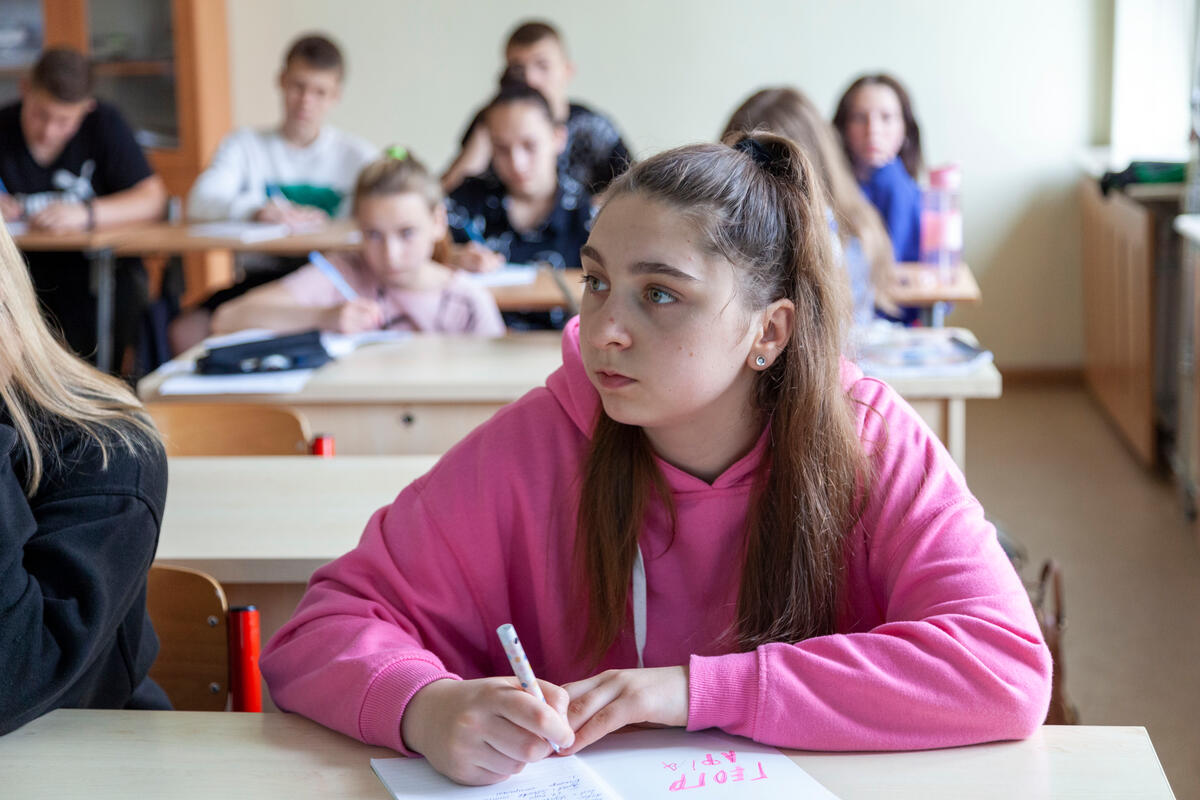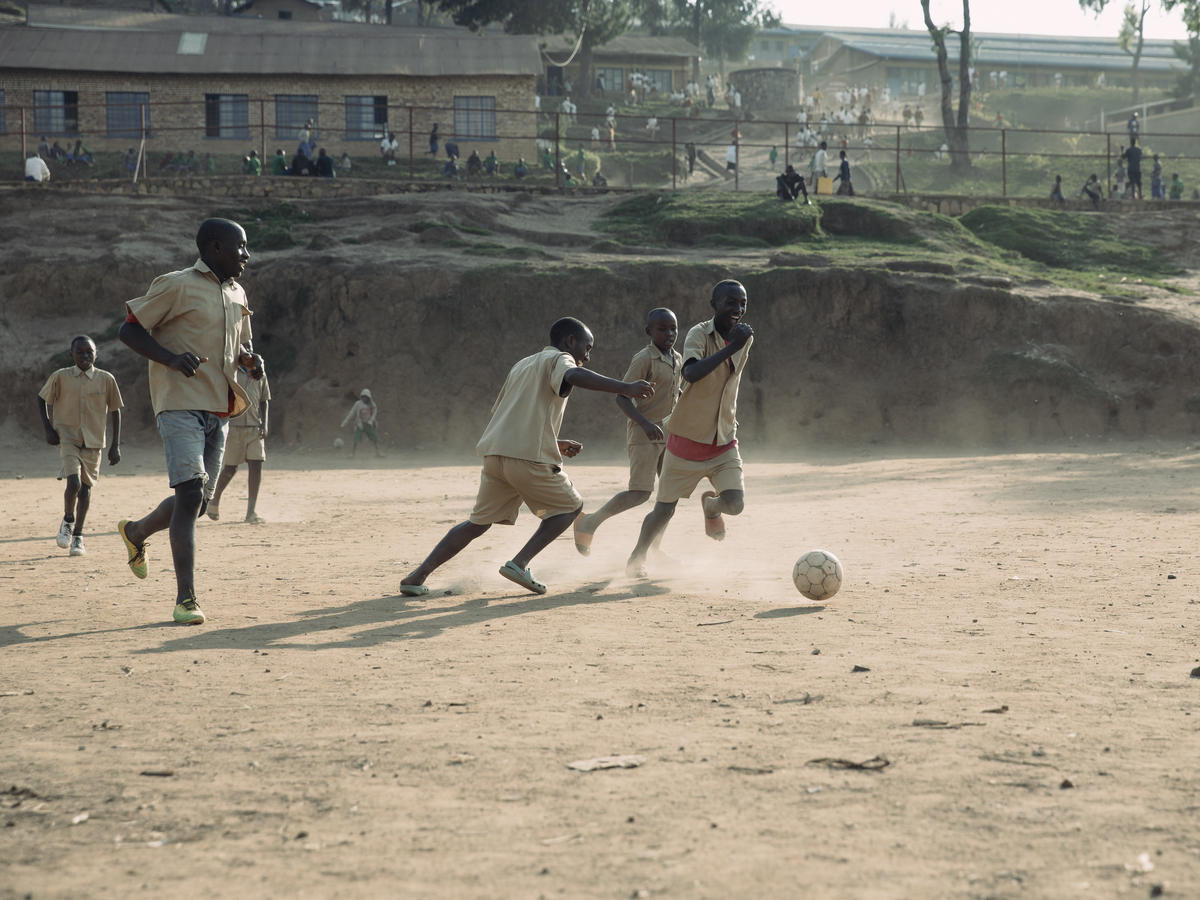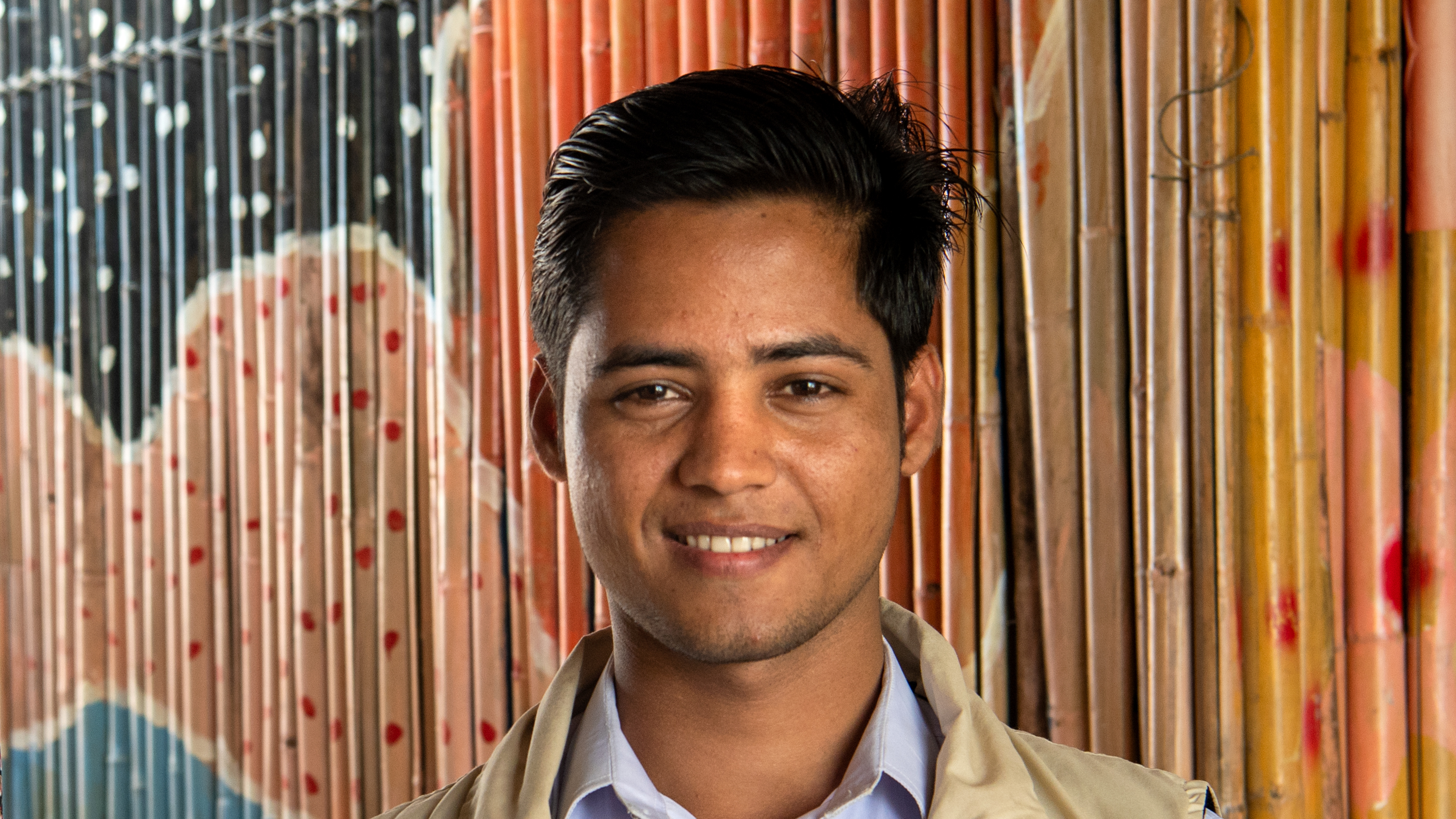Q&A: Refugee advocate turns page on Afghan beginnings
Q&A: Refugee advocate turns page on Afghan beginnings

ISLAMABAD, Pakistan, November 16 (UNHCR) - As a girl, Khadra Mohammed listened to her father's stories about Somalia before he fled the Mohamed Siad Barre regime for the United Arab Emirates. As a teenager, she volunteered to help Afghan refugees in Pakistan. As executive director of the Pittsburgh Refugee Centre in the United States, she recently returned to the Afghan refugee camps to present a book she wrote about refugee girls. She discussed her experience with UNHCR Senior Regional Public Information Officer Vivian Tan. Excerpts from the interview:
How did you first get involved in refugee issues?
Usually, people who grow up in privileged places [such as Abu Dhabi] are not so interested in aid work. But my father used to tell us stories about Somalia, telling us not to forget about people in need. I think everyone has a dose of empathy but it's a talent you have to nurture.
My interest in refugees first started around 1980, after Afghanistan was invaded by the Soviet Union [in December 1979]. It was all over the news in the Gulf countries, and I was drawn to these images of people helping the Afghans in Pakistan. It was the first time I heard the term refugees. My mother had given me a 24-carat gold bracelet and I donated it to a fund-raising drive at the mosque. But I wanted to do more.
Describe your first experience with refugees.
I first went to Peshawar [in Pakistan's North-West Frontier Province] when I was 16, as a volunteer for Islamic Relief. The TV images prepared me in a way, but I didn't expect it to be in my face. The smell of crowds and sewage really hit me. I remember seeing tents everywhere, and makeshift shelters with metal roofs. Many people were just getting off the bus from Kabul; some had been in Peshawar for a year or so. They were helping the newcomers and asking for information on family they had left behind. There were long lines of people waiting for food and water. Everyone just wanted a meal, clean water and medical attention for the sick after such a long journey.
I was helping in the health sector, holding the refugee kids during immunization shots, keeping them busy when their mothers were getting their check-ups. I took them around when their mothers were resting, and sometimes I would read them Arabic children's books I had brought from home.
I was only there for a week, but it left such a deep impression on me. That experience helped me decide to study child development years later, and Afghan refugees still occupy a soft spot in my heart today.
What are your impressions after revisiting the Afghan camps?
The look in their eyes has changed. When they first arrived in Pakistan, there was disbelief, shock, trauma in their eyes. This time, I saw sadness, almost a loss of hope. They said they cannot go back to Afghanistan - because of insecurity, the fact that the family has grown up in exile and the lack of land and resources to sustain their return.
I see Afghans as the forgotten refugees. It's been a 30-year saga and the world has passion fatigue. Now it's even more complicated because of terrorism. It's hard to sift through all these security and humanitarian crises, easier to just put Afghan refugees on the backburner.
But what I noticed was the resilience of the Afghans, their ambition and determination to survive and succeed, whether they work as garbage collectors, carpet weavers, shopkeepers or in the brick kilns. I wasn't just visiting refugee camps, I was looking at settlements, small villages and bustling markets with Afghans who look and dress like the locals. I was also very impressed by the trust and respect between the refugees and UNHCR staff.
What inspired you to write "Four Feet, Two Sandals"?
In Pittsburgh, I used to volunteer my evenings to read to the children of resettled refugees, because their parents didn't know English. An Afghan girl named Zanib asked me if there were any books about people like her, i.e. refugee children. I looked everywhere and found nothing. That night, I sat down and wrote "Four Feet, Two Sandals" and "My Name is Sangol" in three hours.
"My Name is Sangol" is about a Sudanese refugee boy inspired by my visits to camps in Kenya. It will be published next year. "Four Feet, Two Sandals" is about friendship and sacrifice between two Afghan girls. It's based on an image that's stayed in my head for years - of Afghan refugee children running in bare feet in the winter.
How have children reacted to your book?
I had book readings in Quetta and a Peshawar camp recently. The refugee children were very excited to see an Afghan girl on the cover. They kept pointing to the illustrations and giggling. I take that as a sign of approval. Because ultimately this is their book, not mine.
I also read the story to some kids at the international school in Islamabad. They were very enthusiastic and the principal is starting a campaign to donate shoes to Afghan refugee children. Don't be surprised if you get truckloads of shoes soon!
Ultimately, how do you think you can best help refugees?
I think awareness is the most important thing. Many people can help, but they don't know. In the US, for example, people don't know the difference between refugees and migrants. To them, it's a matter of who's documented and who's not. Our job at the refugee centre is to help them see the difference, and what they can do to help. We do a lot of outreach to raise awareness in schools, universities, among the local community in Pittsburgh. Here we have resettled refugees from Viet Nam, Congo, Liberia, Afghanistan, Somalia, Sudan, Iraq, from all over the world. At the individual level, we also advocate for them when they face problems at work, school or the hospital, to give them a voice.
What's next?
Fifty percent of the sales from "Four Feet, Two Sandals" will go straight to UNHCR's Pakistan operations. I'll also start an awareness- and fund-raising campaign upon my return to the States to shed light on the forgotten Afghan refugees and the unsung heroes of UNHCR. At the same time, I'm talking to Nike to see if they can donate 3,000 pairs of shoes to the Afghan refugee children in Pakistan.
After my second book is published, I hope to start working with Somalia refugees in Yemen. There are so many needs in the world. You can't differentiate or discriminate between them. I know you can get overwhelmed and desensitized, and faces become just numbers. If that day ever comes, I'll know I'm done. But for now, I'm taking it one step at a time.








